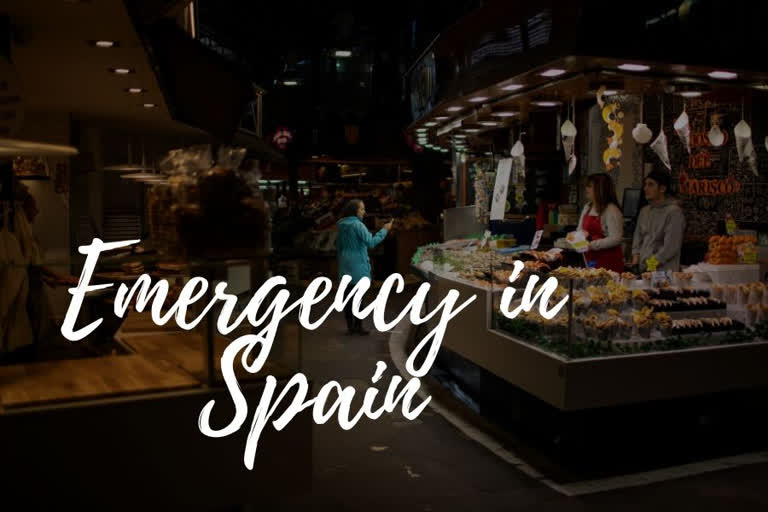Madrid: With Italy already submerged in a national quarantine, Spain took a major step Friday toward a similar lock-down as it struggles to ride the wave of the novel coronavirus pandemic spawning illness and fear around the globe.
Spanish Prime Minister Pedro Sánchez said his government declared a two-week state of emergency on Saturday, giving itself extraordinary powers including the mobilization of the armed forces, to confront the COVID-19 outbreak.
“It's an emergency that affects the life and health of all," Sánchez said, adding that he is preparing a battery of measures to brace the nation for an even bigger jump in infections indicated by the rapidly increasing contagion curve.
The positive cases could be over 10,000 by next week, the prime minister warned in his televised address, from more than 4,200 confirmed by midday Friday. A total 120 people have died, and 189 have been declared as recovered.
A state of emergency allows the central government to limit free movement, legally confiscate goods and take over control of industries and private facilities, including private hospitals. It's only the second time that the government has evoked it since the return of democracy in the late 1970s. The other was declared during a 2010 air traffic controllers' strike.
Read: Reasons behind coronavirus hitting hard at Italy
Over 60,000 people awoke Friday in four towns near Barcelona confined to their homes and with police blocking roads, in the country's first mandatory lock-down. The southeastern region of Murcia since announced it was locking down coastal areas popular with tourists, a measure that could affect more than 350,000.
And late in the evening, the regional authorities of Catalonia, in the northeast, and Madrid, urged central authorities to declare full lock-downs. Spain's semi-autonomous regions control health and education but the national government holds key powers and manages most infrastructure.
With hospitals rapidly filling up, the Spanish capital is a source of particular concern.
Unlike China, which cracked down quickly to restrict movement by people, Italy, Spain and other European countries have taken a more measured approach to strike a balance between the public health crisis and individual freedoms.
Italian authorities have acknowledged that escalating restrictions have been unable to contain the virus. Italy this week has gone into complete quarantine with authorities threatening to impose heavy fines and even jail time for those who break it.
Spain joins its European neighbours including Italy, Slovakia, Hungary, Czech Republic and Bulgaria in declaring a state of emergency over COVID-19 pandemic.
(AP report)



